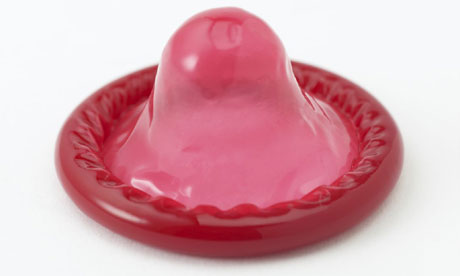
I read last week that "if you talk about sex it makes young people have sex". Talk about it, and we go straight out and do it. What a peculiar view of young people. When Brook Advisory Service opened its doors in 1964, lots of people thought that way, but on the whole society has moved on.
Everyone wants young people to be safe, and to have the best start in life. Last week, the government announced new money to increase the use of contraception, particularly long-acting methods such as the contraceptive injection. This welcome investment provides a fresh opportunity to refocus our efforts on improving sexual health.
Every day 1,500 young people come to Brook because they need help and advice, yet the myth peddlers argue that they are irresponsible and too immature to make moral decisions about sex. Some of those who oppose Brook's work argue that I don't care when young people have sex. Of course I do. Like most sensible adults, I want young people to be mature enough to enjoy and take responsibility for the sex they have.
We all know teenage pregnancy rates in Britain are the highest in western Europe, and that sexually transmitted infection (STI) rates among young people are rocketing. We are told so daily. However, what most people don't hear is that the majority of young people under 16 do not have sex; most young people intend to use contraception, and most navigate their sexual relationships well.
Teenage pregnancy rates are lower than they have been for 20 years. Assuming we continue this downward trend, rates will soon be the lowest on record. The UK's rising STI rates are at least in part because we are encouraging young people to get tested, so we are treating infection we previously didn't. This has to be a good thing, surely? So why does it not get reported? Is it journalistic laziness, anger, or disappointment that the teenage pregnancy strategy is showing results?
When I visited the US, an eminent social researcher said: "We get what we expect [from young people]. If we expect them to be responsible, they will be. If we expect them to make bad decisions, they will."
When we understand contraceptive use and failure in the context of young people's lives, we can really make a difference. Much youth policy now has a fresh and exciting dimension; self-esteem, confidence and hope for the future lie at its core. This is important because it means the new money the government has allocated for raising awareness about contraception will be used on interventions that focus on emotional development and aspiration, alongside specific activity focusing on contraceptive awareness and use.
Today, Brook holds its annual conference, and delegates will hear how some young people have worryingly low knowledge about different methods of contraception. They will hear how young people often push contraception out of their minds because if they don't, they then have to admit they are having sex.
In 2008, some young people are still uncomfortable with their bodies, settling for unsatisfactory sex, which is far less than they deserve. This week, we launched a campaign, It's Your Choice, stating the fact that unless you use contraception you risk an unplanned pregnancy. Not rocket science on the face of it, but a choice is only a choice if you make it - and for too many young people, sex just happens.
We don't collude with the idea that "any sex will do" if we talk about it or provide contraceptive and sexual health services. If we show young people we care and want the best for them, they are much more likely to find someone and a contraceptive method that works for them.
· Simon Blake is chief executive of Brook Advisory Service. For details of its latest campaign go to brook.org.uk/itsyourchoice

